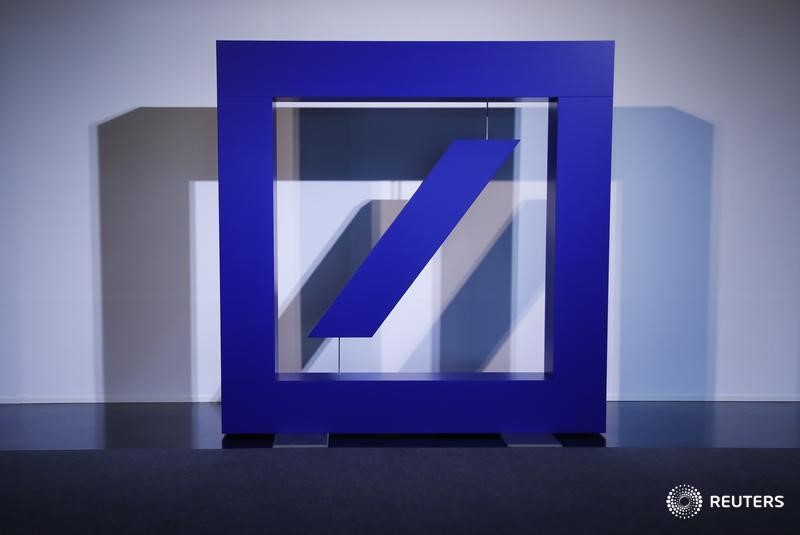By Geoffrey Smith
Shares in Deutsche Bank (DE:DBKGn) hit a two-month high on Monday after it announced a sweeping overhaul at the weekend that will shrink its balance sheet by over 20% and its workforce by a quarter.
The bank is calling time on a 20-year campaign to be one of the world’s dominant investment banks, a destructively ambitious folly that has resulted in wholesale destruction of shareholder value, while enriching a succession of top managers and traders.
The shares were up 2.5% on a morning when much of Europe is down, and they’re now up over 20% since details of the plans began to leak out in June. The DAX index, meanwhile, was down 0.2% while the STOXX 600 was effectively flat.
The announcement marks a shift in gear for Germany’s largest bank, which has for years been reluctant to cut a unit which has constantly struggled to cover its costs, and which has been the source of a series of expensive scandals that have cost it billions in legal settlements.
The restructuring is even bigger than advance leaks had suggested: the bank will carve out some of the 72 billion of its 347 billion euros in risk-weighted assets into a unit that will be wound down by 2022. The bank expects the “capital release unit” – a euphemism for bad bank - to release 5 billion euros for shareholders from 2022, but is asking them to do without dividends for the next two years.
When the restructuring is complete, Deutsche Bank will be a much more conservative institute focused on servicing the needs of corporate Germany, a vision that CEO Christian Sewing called a return to the bank’s roots. The derisked bank will need to hold less capital, but will still struggle to make much of a profit, given the fundamentals of the German banking market. Management only expects a return on tangible equity of 8% by 2022 (compared to an original 10% target already next year).
The reality is that the bank can’t simply turn the clock back. When it began its pursuit of world domination in the 1990s, it had significant equity stakes in a long list of domestic companies that gave it unparalleled influence in their boardrooms. In today’s more globalized world, where finance is more often than not a commodity like any other, DAX companies have plenty of other options and aren’t afraid to use them: the bank was largely sidelined in the asset swap between Germany’s two biggest energy companies, RWE and E.On, last year. Most importantly, with the European Central Bank about to cut interest rates below zero, its key lending business will struggle to generate much in profit for years to come.
The shares may be up this morning, but they are still down over 90% from their peak. The legacy of its ill-judged ambition is that the market now values it at barely 5% of JPMorgan Chase & Co (NYSE:JPM), against which it once aspired to measure itself.
